Search titles
Displaying results 31 to 40 of 570.

Rebellion at Coranderrk »
Authored by: Diane Barwick
Publication date: August 2024
More than a century ago an Aboriginal community in Victoria campaigned for recognition of their right to occupy and control the small acreage they had farmed for 25 years. Others wanted to develop this tract. Government spokesmen denied that the occupants had inherited any rights to this land and declared that, anyway, they were not really Aborigines. This book is about the rebellion at Coranderrk Aboriginal Station between 1874 and 1886. It describes how Coranderrk families fought to keep their land. To explain why they fought I must begin with the years before, to show what this ‘miserable spadeful of ground’ meant to them, and how they came to be there. Finally, I sketch what ultimately happened.
First published in 1998, 12 years after the death of its author Diane Barwick, Rebellion at Coranderrk was an attempt to rectify some of the injustices of the past two-hundred-plus years in Australia, and to prevent similar occurrences in the future.
It remains acutely relevant.
This book includes the names and images of people who are now deceased.
‘All Australians have good reason to be grateful to Diane Barwick.’
— H. C. Coombs
‘The painstaking research, the perceptive judgements of people and events, and the brilliant prose combine to produce a magnificent account of the Kulin and their European “administrators”. The book is simply packed with historical reinterpretation and vivid reconstructions of families and individuals.’
— C. T. Stannage
‘The author’s research found that Coranderrk is an excellent example of … an Aboriginal (farming) success story. It is very relevant to modern land-rights protests throughout Australia.’
— Canberra Times
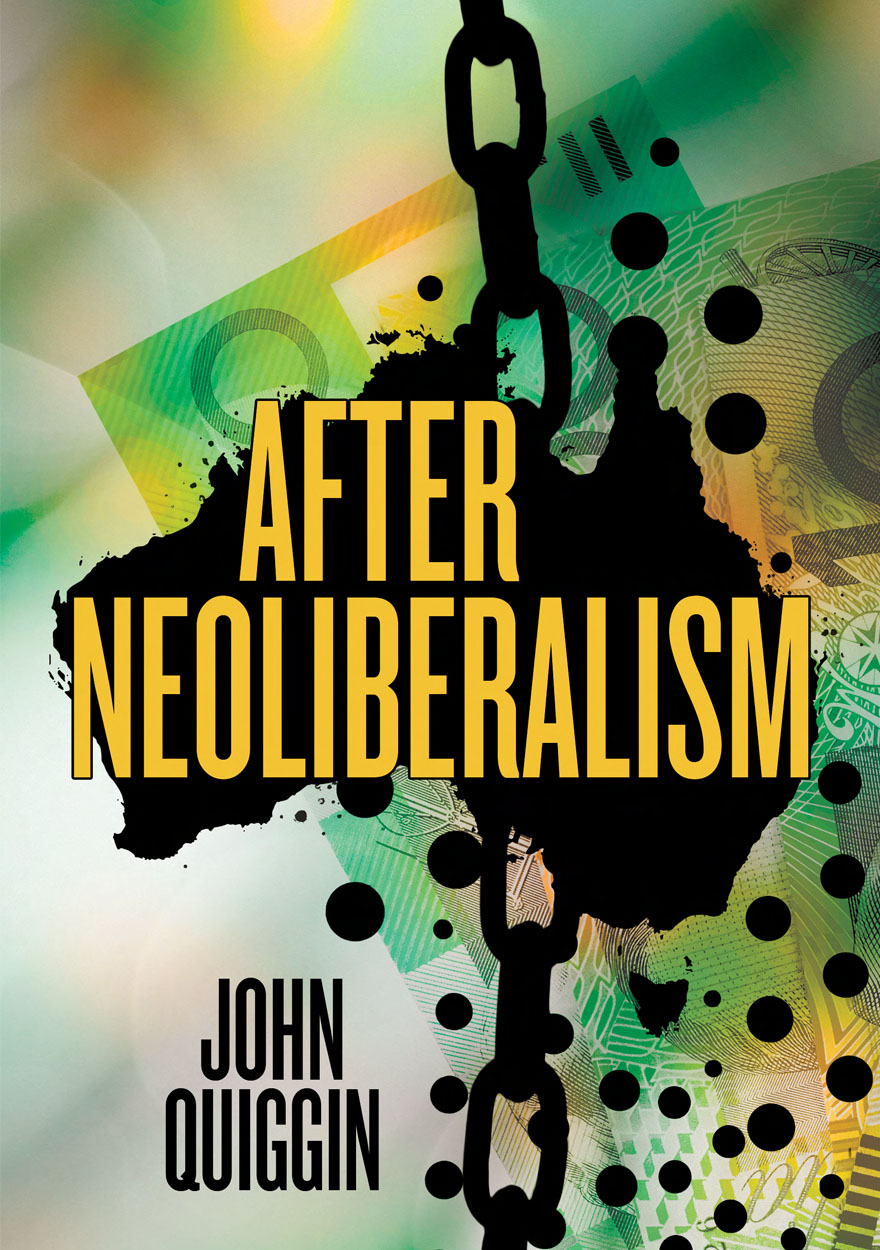
After Neoliberalism »
Authored by: John Quiggin
Publication date: July 2024
Since the early 1980s, Australian economic policy has been dominated by the ideology of neoliberalism (also known as ‘economic rationalism’), including policies of privatisation, financial deregulation and micro-economic reform. Throughout this period, John Quiggin has presented critical assessments of neoliberal policies and the claims about productivity growth made in support of those policies.
The credibility of neoliberalism was fatally wounded by the Global Financial Crisis and its aftermath. Nevertheless, market ideology has lumbered on in zombie form, for want of a clear alternative. It is only recently that we have begun to reverse the failed policies of privatisation and deregulation and to consider radical alternatives such as a shift to a four-day week.
This book provides a historical perspective in the form of a series of articles written from the mid-1980s to the present day. It concludes with some suggestions for the way forward, after neoliberalism.
‘John Quiggin is the intellectual equivalent of a dazzling fireworks display. I walk away from every encounter with a bright new insight, and this book is no exception. Agree or disagree, Professor Quiggin is a veritable trove of fresh insights. Spanning nearly four decades, this volume brings together some of Professor Quiggin’s most provocative contributions, driven by a deep commitment to equity. It will pique your curiosity and encourage you to work towards a better world.’
—Andrew Leigh, Parliamentarian and author of The Shortest History of Economics
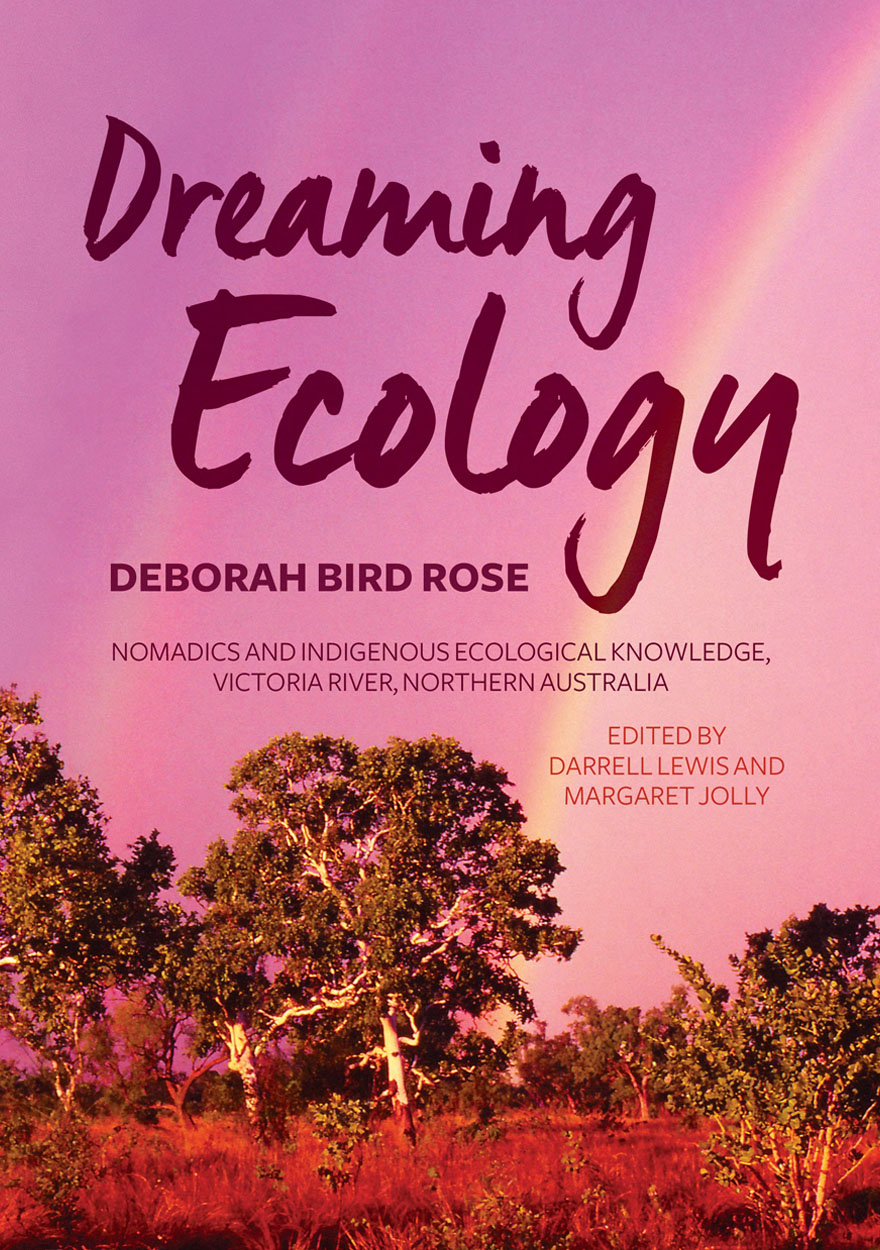
Dreaming Ecology »
Nomadics and Indigenous Ecological Knowledge, Victoria River, Northern Australia
Edited by: Darrell Lewis, Margaret Jolly
Authored by: Deborah Bird Rose
Publication date: May 2024
In the author’s own words, Dreaming Ecology ‘explores a holistic understanding of the interconnections of people, country, kinship, creation and the living world within a context of mobility. Implicitly it asks how people lived so sustainably for so long’. It offers a telling critique of the loss of Indigenous life, human and non-human, in the wake of white settler colonialism and this becoming ‘cattle country’. It offers a fresh perspective on nomadics grounded in ‘footwalk epistemology’ and ‘an ethics of return sustained across different species, events, practices and scales’.
‘This is the final and most substantial of Debbie’s love letters to the Aboriginal people of the Victoria River Downs. I say this because there is such a sense of reverence, wonder and respect throughout the book. The introduction of concepts of double-death, footwalk epistemology, wild country … are not only organising ideas but characterisations arising from what Debbie hears, sees and feels of herself and Aboriginal others … I think of it in terms of love, if love is care, reciprocal respect, deep connectivity and a strong desire to never make less of the people she chose to commit herself to.’
—Richard Davis
‘This book was a pleasure to read, filled with careful description of people, places, and various plants and animals, and insightful analysis of the patterns and commitments that hold them together in the world.’
—Thom van Dooren
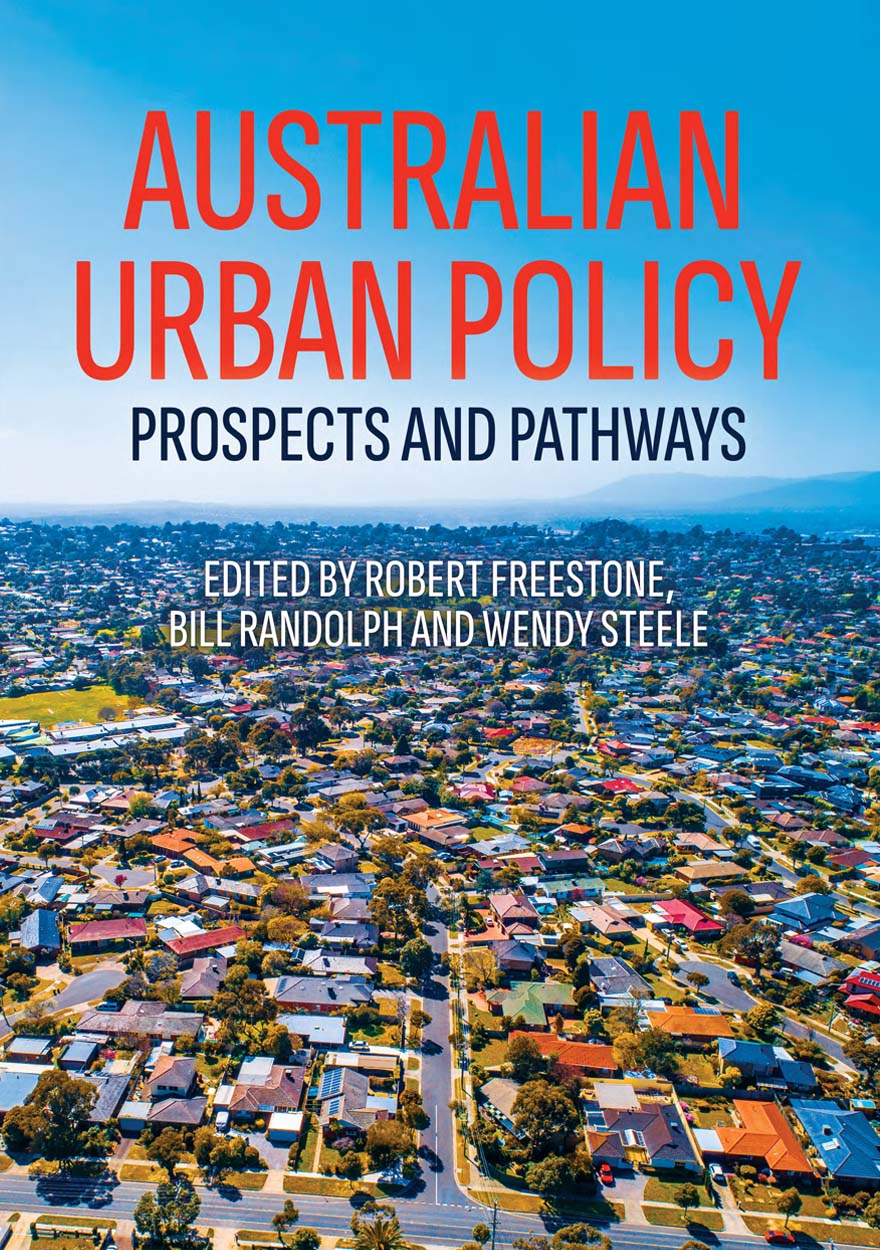
Australian Urban Policy »
Prospects and Pathways
Publication date: March 2024
Urban Australia confronts numerous challenges in the 21st century: climate change, housing, transport, greenspace, social inequality, and governance, among them. While state and local governments wrestle with these issues, they are continent wide and require national leadership, direction and participation. As a highly urbanised country without a national approach to urban policy, Australia is an outlier.
Contributors to this book argue that this policy gap needs to be addressed. They ask: How have productive, sustainable and liveable cities so far been enhanced? Where have aspirations fallen short or produced negative outcomes? And what approaches are emerging to challenge existing and devise new urban policy settings?
In the face of ongoing crises and escalating change, the need for policy to quickly transform urban Australia is daunting. Problems, wicked in their complexity, require innovative, ethical solutions. This book offers new ideas that challenge policy orthodoxy.
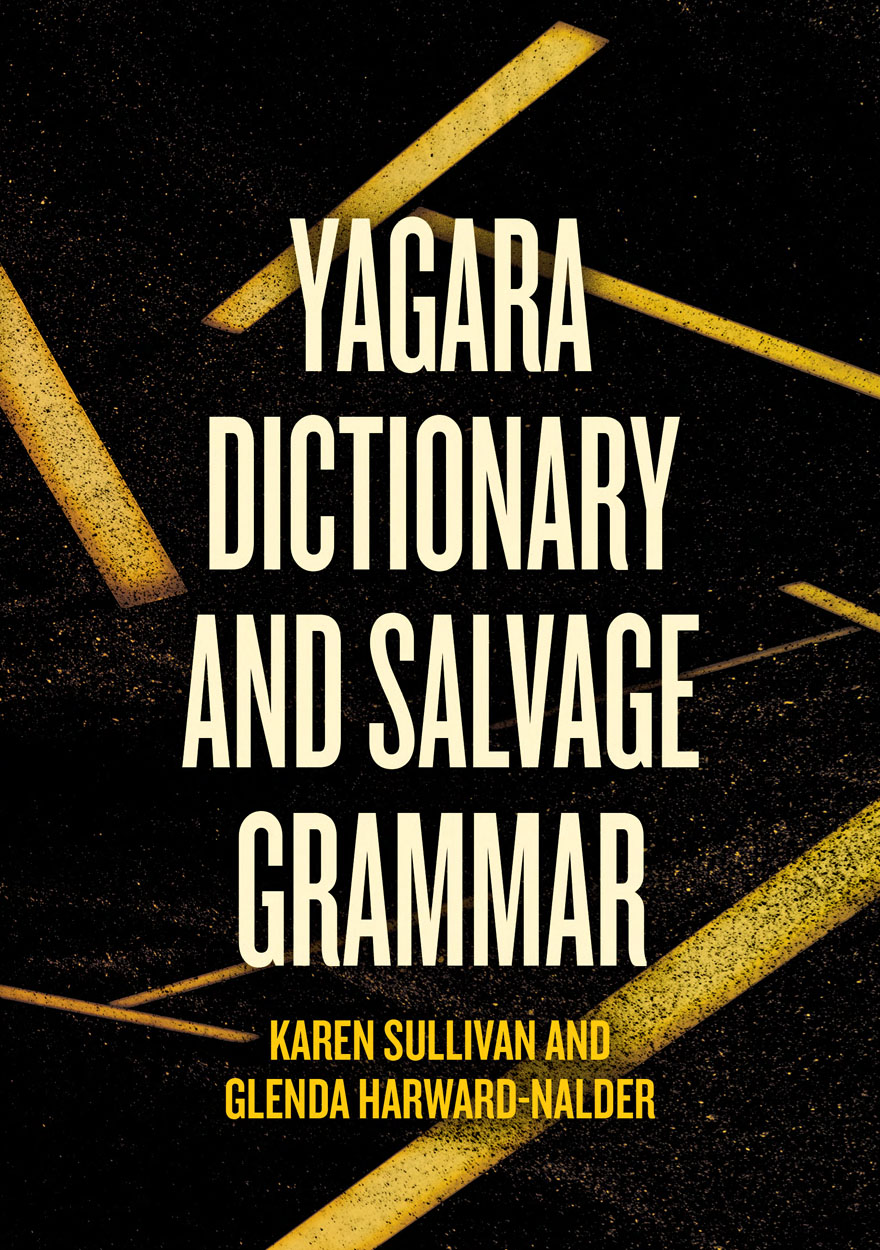
Yagara Dictionary and Salvage Grammar »
Authored by: Karen Sullivan, Glenda Harward-Nalder
Publication date: March 2024
Most English speakers in Australia know a few words of Yagara, the Pama-Nyungan language traditionally spoken in the area that now includes Brisbane and Ipswich. For example, Australian English yakka ‘work’ comes from the Yagara verb yaga ‘to work’. However, no fluent native speakers of Yagara remain. The current volume compares the written records of Yagara to facilitate revitalisation of the spoken language.
Part 1: Grammar introduces the Yagara sources, which are then compared to extract a picture of Yagara’s structure – its sounds, its words, and its grammar. Attention is also given to the system of kinship terms, moieties, and totems.
Part 2: Dictionary contains the most complete Yagara-English dictionary to date, with over 2,200 entries, the original source spellings for each word, standardised spellings, and anthropological notes. Entries include traditional place names, fun insults, and everyday expressions such as the greeting wi balga ‘Hey, come’. The dictionary is followed by an English word finder list.
Part 3: Texts consist of full versions of all known texts in Yagara, including sentences, songs, and three Bible stories. Standardised versions are accompanied by English translations and the original unedited renditions.
Format: Hardback
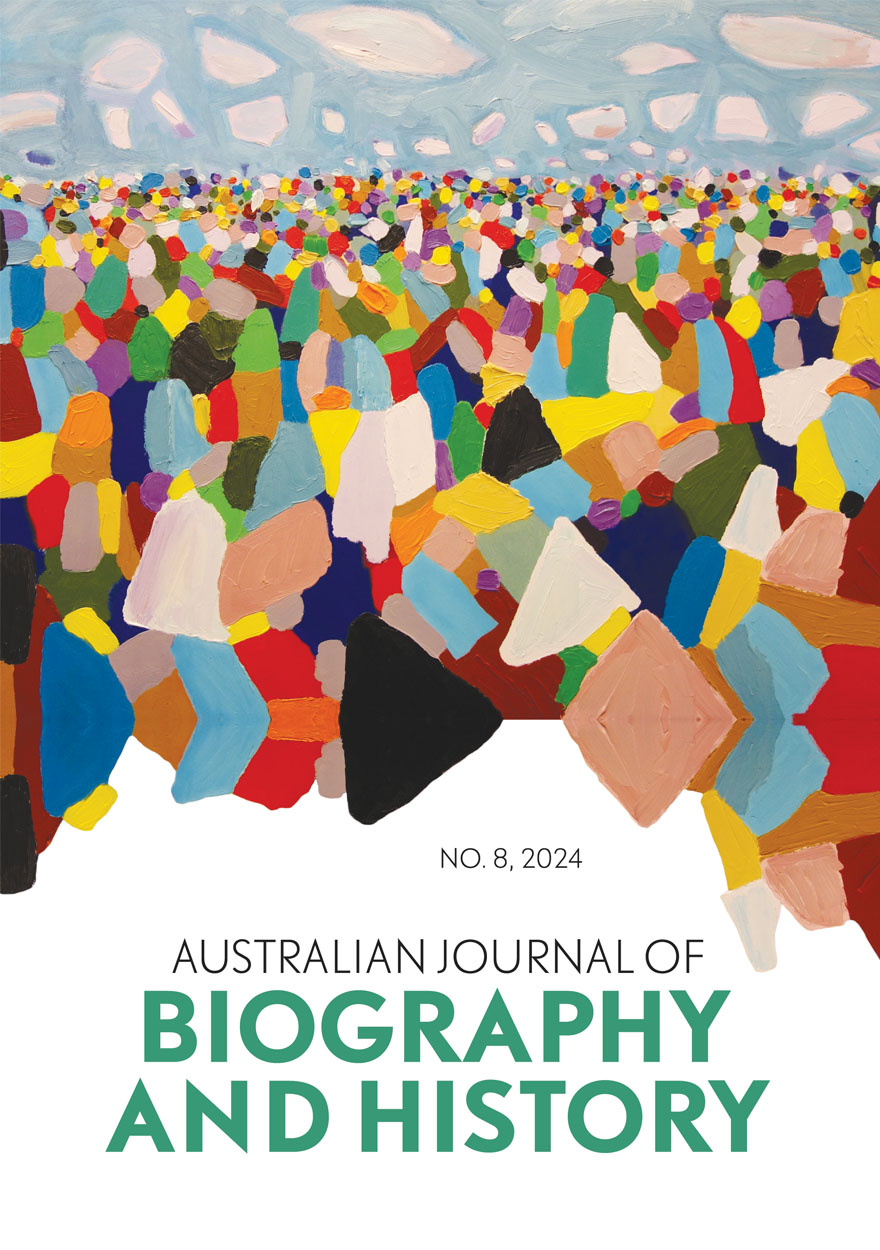
Australian Journal of Biography and History: No. 8, 2024 »
Publication date: February 2024
The Australian Journal of Biography and History No 8 (2024) applies biographical methodologies to enliven themes and episodes in Australian history. Studying John Wear Burton, the head of the Commonwealth department of external affairs between 1947 and 1950, Adam Hughes Henry explores some of the ways in which anti-communism in 1950s Australia served to limit critical thinking on the country’s foreign policy. Gary Osmond and Jan Richardson write on the Black sports promoter and entrepreneur Jack Dowridge, who lived and largely thrived in Brisbane between the mid-1870s until his death in 1922. Phillip Deery and Julie Kimber examine the often-overlooked figure of Evdokia Petrov, considering the ‘disjuncture between historical imagination and the archival record.’ In Richard Fotheringham’s article on the variety entertainer and singer Jenny Howard, aka Daisy Blowes, Howard emerges as a character in her own play. Martin Thomas relates in his article ‘Patrick White and the Path to Sarsaparilla’ how the novelist Patrick White demanded a ‘final pound of flesh from his biographer’ by making David Marr ‘sit with him at the dining table while he read it in front of him from beginning to end.’ The result was a biography of ‘complete artistic freedom’, ‘unauthorised’ certainly, but ‘aided and abetted by its subject.’ Patricia Clarke describes the experience of the journalist Iris Dexter, née Norton (1907–1974), in seeking, but until 1950 failing to obtain, a divorce from an abusive husband, and the devastating impact the episode had on her life. Two further articles in this number utilise collective biographical methodologies to illuminate historical episodes which have become emblematic in Australian history: Nichola Garvey relates the story of the ‘death ship’ Neptune, which arrived in New South Wales in 1790 as part of the infamous second fleet; and Peter Woodley examines the 1891 Queensland bush workers’ strike. This affair has generally been portrayed as a ‘war’ between capital and labour, but as Woodley argues, the strike also showed the ‘often intense and fraught intersections of individuals’ lives’, many of which would never have come to light were it not for the strike and its judicial consequences.
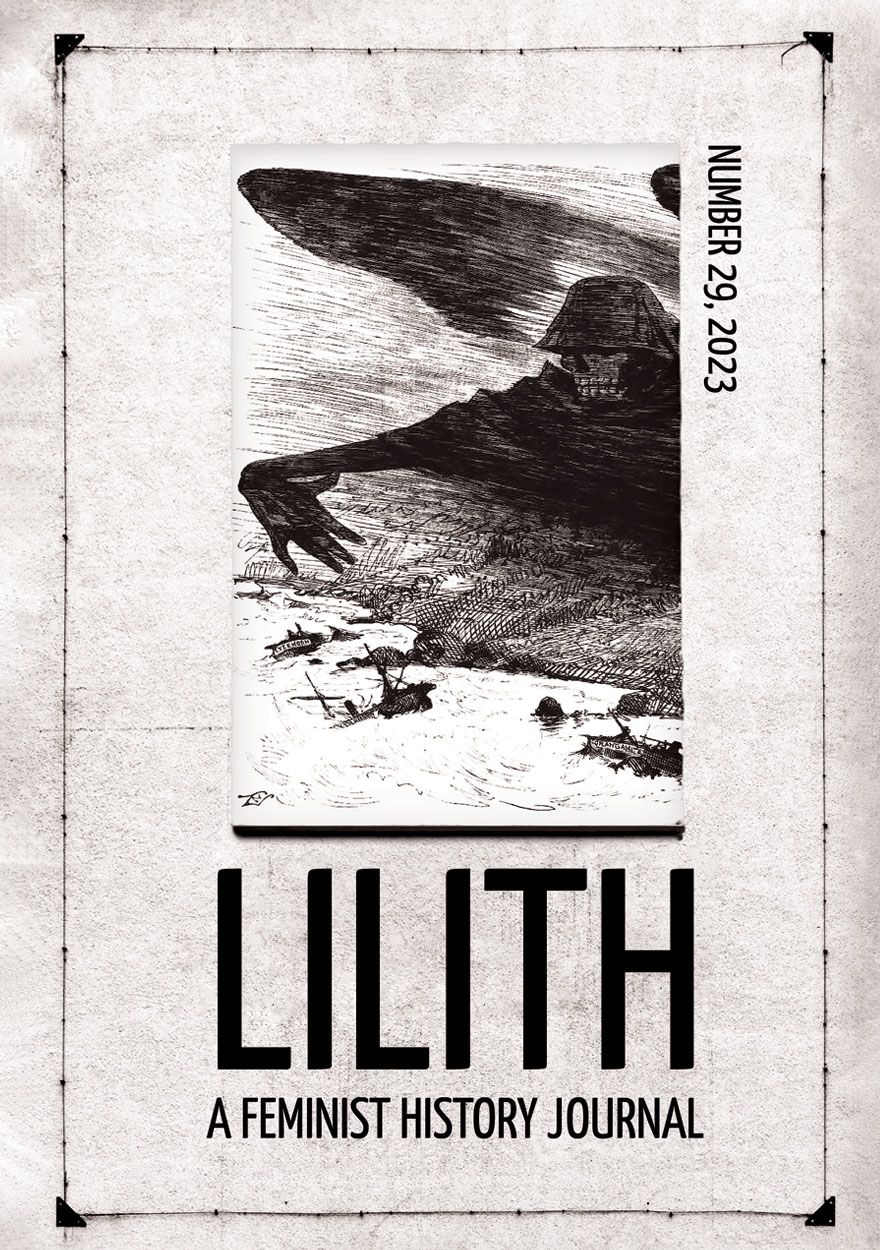
Lilith: A Feminist History Journal: Number 29 »
Publication date: December 2023
The 2023 issue of Lilith showcases the journal’s dedication to encouraging underrepresented voices in historical writing, including early-career scholars, First Nations voices and historians from diverse linguistic and cultural backgrounds. Six of the research articles in the issue focus on nineteenth and early twentieth-century topics, with papers on women’s roles in interwar international diplomacy, on Indian prostitution under British colonialism, on the relationship between interracial rape and white femininity on the Australian colonial frontier, on the role of gender in the NSW Shipwreck Society of the late nineteenth century, and on the struggle of women for public lavatories in 1912 Meanjin (Brisbane). Two of the research articles concern more recent histories, with papers on the role of Māori women in feminist movements of the 1970s, and the construction of sexual consent in Dolly Magazine of the late twentieth century. There is also a review essay about global histories of feminism and gender struggle which evaluates several recent such works, reflecting on their methodological innovations and concerns. The edition includes six short book reviews that span a wide range of international and local interests, covering topics such as the digital humanities, the global history of sexual violence, US queer history, Australian queer women’s history, gender in European colonial travel, and the history of the pram in Australia.
Several of the articles in the volume concern the international engagement of feminist struggles and intercultural questions in relation to gendered roles in history, while others gesture beyond the concerns of historical studies alone, addressing issues of rape culture, political activism, women’s spaces, and gendered emotions, making valuable contributions to the wider Australian humanities and social sciences. The volume exemplifies the value of balancing international trends in feminist history with the recognition of local episodes in the history of gender struggle, underscoring Lilith's commitment to advancing new forms of feminist historical writing and showcasing innovative research by scholars at diverse career stages.
Download for free
Not available for purchase

ANU Historical Journal II: Number 4 »
Publication date: November 2023
In the fourth issue of the ANU Historical Journal II, broad and urgent historical questions about memorialisation, environmental change, and violence are elucidated by detailed and thoughtfully contextualised studies of local places and communities in Queensland, New South Wales and Victoria. The six peer-reviewed articles span topics including frontier sexual violence, the categorisations of child patients in mental hospitals, the politics of war memorialisation, the long history of flooding in Queensland, and changing practices in community cemeteries. Complementing these articles are five book reviews which cast a critical eye on a wide range of new work, encompassing Australian, global, military, political, colonial, and disciplinary history. This issue also features the inaugural Robin-Griffiths Lecture in Environmental History, reflecting on Libby Robin and Tom Griffiths’ path-breaking work and changing sensibilities around national parks, as well as a conversation-style review of ‘Marking Country: Mapping Deep History’, presented by the Research Centre for Deep History. Together these pieces speak to the contributions of the research centres in the School of History, and to the rich range of ways in which history can be meaningfully created and communicated.
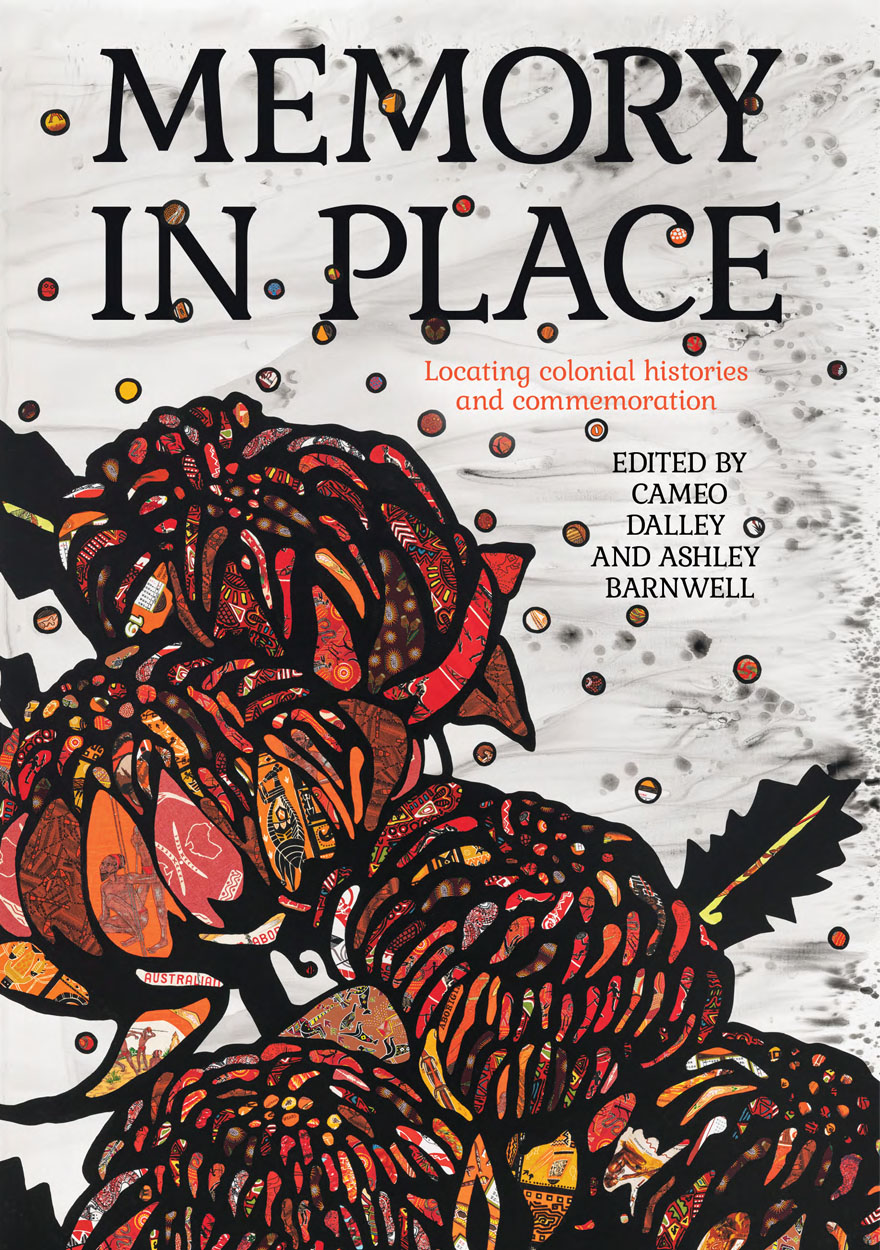
Memory in Place »
Locating colonial histories and commemoration
Edited by: Cameo Dalley, Ashley Barnwell
Publication date: November 2023
Memory in Place brings together Indigenous and non-Indigenous scholars and practitioners grappling with the continued potency of memories and experiences of colonialism. While many of these conversations have taken place on a national stage, this collection returns to the rich intimacy of the local. From Queensland’s sweeping Gulf Country, along the shelly beaches of south Sydney, Melbourne’s city gardens and the rugged hills of South Australia, through Central Australia’s dusty heart and up to the majestic Kimberley, the collection charts how interactions between Indigenous people, settlers and their descendants are both remembered and forgotten in social, political, and cultural spaces. It offers uniquely diverse perspectives from a range of disciplines including history, anthropology, memory studies, archaeology, and linguistics from both established and emerging scholars; from Indigenous and non-Indigenous contributors; and from academics as well as museum and cultural heritage practitioners. The collection locates some of the nation’s most pressing political issues with attention to the local, and the ethics of commemoration and relationships needed at this scale. It will be of interest to those who see the past as intimately connected to the future.
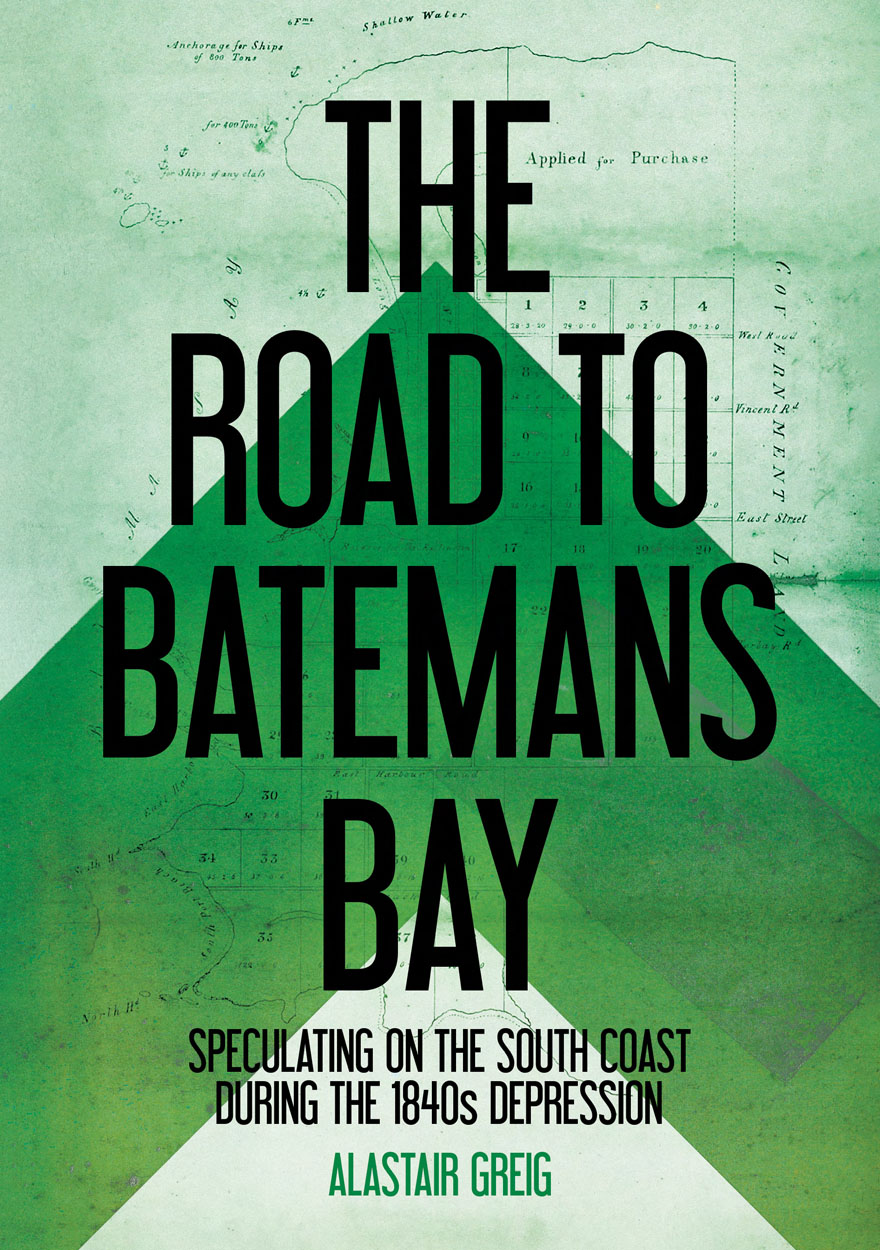
The Road to Batemans Bay »
Speculating on the South Coast During the 1840s Depression
Authored by: Alastair Greig
Publication date: November 2023
The Road to Batemans Bay is the story of competing ventures to create ‘the Great Southern Township’ on the South Coast of New South Wales in the early 1840s. The idea of developing the furthest reaches of settlement was linked to the hopes of southern woolgrowers for a road from their properties to the coast, over the Great Dividing Range. The township proponents dreamed that having a quicker and cheaper connection to Sydney would allow them to open a port second only to Port Jackson.
The scene begins with the proposed coastal township of St Vincent, in an age of optimism: settlement is expanding, exports are growing and land prices are soaring, generating Australia’s first land boom. Before long, however, the colony experiences a catastrophic economic depression whose ‘pestilential breath’ infects those with a stake in the coastal townships. Alastair Greig follows the fate of these individuals, while also speculating on the broader fate of South Coast development during the mid-nineteenth century.
Greig gives a unique insight into many aspects of colonial life—including the worlds of Sydney’s merchants, auctioneers, land speculators, surveyors, map-makers and lawyers—as well as its maritime challenges. The Road to Batemans Bay is a chronicle of how Australia first developed its land-gambling habit and how land speculation led to the road to ruin.



